Erythromycin Suspension 250mg/5ml, 100ml
Erythromycin Suspension 250mg/5ml, 100ml available in:
- Erythromycin 250mg/5ml Suspension, 100ml
- Erythromycin 250mg/5ml Suspension Sugar Free, 100ml
£13.50
CompareCompare- Erythromycin 250mg/5ml Suspension, 100ml
- Erythromycin 250mg/5ml Suspension Sugar Free, 100ml
- Description
- Additional Information
- Brand
- How To Use
- Product Details
- Side Effects
- Ingredients
- How to Store
- Patient Information leaflet
- Reviews (0)
- Questions & Answers (1)
Erythromycin Suspension 250mg/5ml, 100ml
Treat bacterial infections effectively with Erythromycin Suspension 250mg/5ml. This broad-spectrum antibiotic is designed to combat a variety of bacterial conditions, such as respiratory tract infections, skin infections, and more. Available in a 100ml bottle, this formulation provides accurate dosing in both a regular and a sugar-free version, catering to different health needs and dietary preferences.
Erythromycin works by inhibiting the growth of bacteria, making it a reliable choice for treating infections in patients who are sensitive to penicillin. The suspension form ensures it is easy to administer, especially for children or those who have difficulty swallowing pills.
Product Benefits:
- Broad-Spectrum Antibiotic: Effective against a wide range of bacterial infections.
- Available in Sugar-Free Form: Suitable for patients monitoring sugar intake, such as diabetics or those preferring a healthier alternative.
- Easy to Administer: Comes with a dosing syringe for accurate measurement, ensuring proper treatment.
- Rapid Relief: Starts working quickly to reduce symptoms and speed up recovery.
Common Uses: Erythromycin Suspension is commonly used to treat:
- Respiratory tract infections like pneumonia and bronchitis
- Skin and soft tissue infections
- Other bacterial infections that are responsive to erythromycin
Why Choose Erythromycin 250mg/5ml Suspension? Erythromycin is a trusted name in antibiotics, offering fast and effective treatment for various bacterial infections. The suspension form makes it a convenient option for all ages, ensuring those who are not able to swallow pills can still receive the necessary medication. With the option of a sugar-free formulation, it also meets the needs of a wider range of dietary restrictions.
Ensure effective treatment of bacterial infections with Erythromycin Suspension 250mg/5ml. Shop now and take the first step towards a faster recovery and improved health.
Erythromycin Suspension 250mg/5ml Reviews
After using Erythromycin Suspension 250mg/5ml, it’s helpful to let others know about your experience. Reviews of an item help other users know that medicines received have helped the condition it is claimed for, how well the treatment worked or any issues to be aware of. We invite our users to leave a review of both their treatment and of the service provided. Click on the reviews tab to see if there has been feedback on this item.
What is the price of Erythromycin Suspension 250mg/5ml?
The price of Erythromycin Suspension 250mg/5ml is £13.50
Where can you buy Erythromycin Suspension 250mg/5ml?
You can buy Erythromycin Suspension 250mg/5ml at Dock Pharmacy Essex UK, UK Online Pharmacy.
Can you buy Erythromycin Suspension 250mg/5ml Over the counter?
Erythromycin Suspension 250mg/5ml is not available to buy over the counter. You need a prescription to buy Erythromycin 250mg/5ml Suspension from Dock pharmacy. You can find more information about how to obtain the medication here:
Disclaimer: This product description is provided for informational purposes only. It is not a substitute for professional medical advice, diagnosis, or treatment. Always seek the advice of your physician or other qualified health provider with any questions you may have regarding a medical condition
Dock Pharmacy
128 Dock Road, Tilbury, Essex, RM18 7BJ
Tel: 01375846316
| Brand | |
|---|---|
| Flavour | Sugar Free, Normal |
Brand
Erythromycin
How To Use
HOW TO TAKE ERYTHROMYCIN
Always take this medicine exactly as your doctor or pharmacist has told you.
Check with your doctor or pharmacist if you are not sure.
Patients with kidney problems must be given a reduced dose. Shake Erythromycin well before use. Taking Erythromycin with food and drink: Take Erythromycin before meals.
The recommended doses are:
For adults and children over 8 years of age: 2 g per day in divided doses.
In severe infections, this can increase up to 4 g per day in divided doses. Two to four 5 ml spoonfuls four times a day.
For Acne vulgaris, the dose is two 5 ml spoonfuls 3 times daily before meals, for 1 to 4 weeks, and then reduced to twice daily until improvement occurs.
For children aged 2 – 8 years: 30 mg per kg of bodyweight per day in divided doses.
In severe infections, this can increase up to 50 mg per kg of bodyweight per day in divided doses. Two 5 ml spoonfuls four times a day or as advised by your doctor.
For infants under 2 years of age: 30 mg per kg of bodyweight per day in divided doses.
In severe infections, this can increase up to 50 mg per kg of bodyweight per day in divided doses. One 5 ml spoonful four times a day or as advised by your doctor.
An oral syringe may be used to measure this dose. If you forget to take Erythromycin Take the dose as soon as you remember, unless it is nearly time
Product Details
WHAT YOU NEED TO KNOW BEFORE YOU TAKE ERYTHROMYCIN
Do not take Erythromycin: • if you are allergic to erythromycin or any of the other ingredients of this medicine (listed in section 6) • if you are currently taking a medicine called – ergotamine or dihydroergotamine (used to treat migraines) as this may cause serious side effects while taking erythromycin – terfenadine or astemizole or mizolastine (widely taken for hayfever and allergies), domperidone (for nausea (feeling sick) and vomiting (being sick)), cisapride (for stomach disorders) or pimozide or amisulpride (for psychiatric conditions) while receiving erythromycin, as combining these drugs can sometimes cause serious disturbance in heart rhythm. Consult your doctor for advice on alternative medicine you can take instead – simvastatin (used to lower cholesterol and triglycerides (types of fat) in the blood) – tolterodine (used for treating overactive bladder with symptoms of urinary frequency, urgency and leakage) – lomitapide (used to lower increased blood fats such as cholesterol and triglycerides). Taking this medicine at the same time as erythromycin may lead to a rise in enzymes produced by liver cells (transaminases), which indicates that the liver is under stress and may lead to liver problems • if you have abnormally low levels of potassium or magnesium in your blood (hypomagnesaemia or hypokalaemia) • if you or someone in your family has a history of heart rhythm disorders (ventricular cardiac arrhythmia or torsades de pointes) or an abnormality of the electrocardiogram (electrical recording of the heart) called “long QT syndrome”. Warnings and precautions Talk to your doctor or pharmacist before taking Erythromycin: • if you are taking colchicine (used for treatment of gout and arthritis) as this may cause serious side effects whilst taking erythromycin • if you have any liver problems or have been told that any drugs you are taking can cause liver problems • if you have previously experienced diarrhoea following the use of antibiotics • if you are pregnant and have been told that you have a sexually transmitted disease called syphilis. In this case erythromycin may not be effective for preventing the transfer of this infection to your baby. Alternatively if you were treated for early stages of syphilis during your pregnancy, and your child is under 1 year and is prescribed erythromycin, consult your doctor before giving erythromycin to your child • if you are treating a young child with antibiotics and they are irritable or vomit when fed • if you suffer from a condition called myasthenia gravis, which causes muscle weakness • if you are taking erythromycin with ‘statins’ such as simvastatin or lovastatin (used to lower cholesterol) • if you are taking other medicines which are known to cause serious disturbances in heart rhythm • if you have heart problems. Contact your doctor as soon as possible if you develop watery and bloody stools during or up to 2 months after treatment, with or without stomach cramps and fever (to rule out the possibility of pseudomembranous colitis). Other medicines and Erythromycin Tell your doctor or pharmacist if you are taking, have recently taken or might take any other medicines. This is especially important if you are taking medicines from the following families: • astemizole, terfenadine or mizolastine (used to treat allergies such as hayfever) • domperidone (used to treat nausea and vomiting) • pimozide (used to treat mental problems) • ergotamine or dihydroergotamine (for migraine) • cisapride (for stomach disorders) • statins (used to help lower cholesterol levels e.g. lovastatin and simvastatin) • protease inhibitors (used to treat viral infections e.g. saquinavir) • oral contraceptives. This is also important if you are taking medicines called: • colchicine (used to treat gout and arthritis) • cimetidine and omeprazole (used to treat acid reflux and other related conditions) • clarithromycin, rifabutin, or rifampicin (medicines used to treat different types of bacterial infections) • fluconazole, ketoconazole and itraconazole (medicines used to treat fungal infections) • digoxin, quinidine or disopyramide (used to treat heart problems) • cilostazol (a medicine used to treat peripheral circulation problems) • hexobarbitone, phenobarbital or midazolam (used as sedatives) • Anticoagulants e.g. warfarin, acenocoumarol and rivaroxaban (used to thin the blood) • valproate, carbamazepine or phenytoin (used to control epilepsy) • theophylline (used to treat asthma and other breathing problems) • ciclosporin or tacrolimus (used following organ transplants) • bromocriptine (used to treat Parkinson’s disease) • zopiclone or triazolam/alprazolam (used to help you sleep or relieve states of anxiety) • alfentanil (a medicine used to provide pain relief) • methylprednisolone (used to help suppress the body’s immune system – this is useful in treating a wide range of
Side Effects
POSSIBLE SIDE EFFECTS
Like all medicines, this medicine can cause side effects, although not everybody gets them. Contact a doctor immediately if you experience a serious skin reaction: a red, scaly rash with bumps under the skin and blisters
(exanthematous pustulosis). The frequency of this side effect is not known (cannot be estimated from the available data). If you notice any of the following, contact your doctor immediately: difficulty breathing, fainting, swelling of the face, lips or throat, skin rashes, severe skin reactions including large fluid-filled blisters, sores and ulcers, ulcers in the mouth or throat. These may be signs of an allergic reaction. Other side effects of Erythromycin include: • diarrhoea which may be severe or prolonged and may contain blood or mucus • feeling or being sick • increase in a particular type of white blood cells (eosinophilia) • stomach pains; these may be a symptom of an inflamed pancreas (pancreatitis) • ringing in the ears (tinnitus) • reversible loss of hearing (usually associated with high doses or in patients with kidney problems) • various liver or gall-bladder problems, which can cause yellowing of the skin and/or eyes (jaundice) or pale stools with dark urine • chest pain • abnormal heart rhythms (including palpitations, a faster heartbeat, a life-threatening irregular heart beat called torsades de pointes or abnormal ECG heart tracing) or heart stopping (cardiac arrest) • fever • loss of appetite • confusion • fits (seizures) • vertigo (problems with balance that can result in feelings of dizziness or sickness – particularly on standing) • hallucinations (seeing or hearing things that aren’t there) • feeling generally unwell (malaise) • inflammation of the kidneys (a condition known as interstitial nephritis) • low blood pressure • serious skin rashes that may involve blistering and can cover large areas of the torso, face and limbs (conditions known as Stevens Johnson syndrome, toxic epidermal necrolysis and erythema multiforme) • vomiting and irritability in young children between the age of 1 month and 12 months • visual impairment/blurred vision (Mitochondrial optic neuropathy). Reporting of side effects If you get any side effects, talk to your doctor or pharmacist. This includes any possible side effects not listed in this leaflet. You can also report side effects directly via the Yellow Card Scheme at www.mhra.gov.uk/yellowcard or search for MHRA Yellow Card in the Google Play or Apple App Store. By reporting side effects you can help provide more information on the safety of this medicine.
Ingredients
What Erythromycin contains
- the active substance is erythromycin ethyl succinate; each 5 ml of the oral suspension contains erythromycin 250 mg.
- the other ingredients are sodium carboxymethylcellulose, sodium citrate, banana flavour (E4210), quinoline yellow (E104), sodium saccharin, colloidal silicon dioxide and sucrose
How to Store
HOW TO STORE ERYTHROMYCIN
Keep this medicine out of the sight and reach of children. Do not use your medicine after the expiry date which is stated on the label. Once the granules are reconstituted by your doctor or use within 14 days. Do not freeze. Do not throw away any medicines via wastewater or household waste. Ask your pharmacist how to throw away medicines you no longer use. These measures will help protect the environment
Patient Information leaflet
Click here for the Patient Information leaflet
Please read before using the product
Only logged in customers who have purchased this product may leave a review.
Questions and answers of the customers
You Might Also Like
Aknemycin Plus – Erythromycin and Tretinoin Solution, 25ml Aknemycin Plus is an acne treatment that is applied to the skin. This powerful solution contains erythromycin and tretinoin, which work together to effectively clear up blemishes and prevent new breakouts from forming. Aknemycin Plus solution is easy to use, simply apply it to the affected areas […]
Learn More£13.50
- Availability: in stock
Other Products From This Seller
- Validated for 2-8°C for 30 to 36 hrs*
- Perfect for long-haul flights
- Carries pens, bottles, vials and syringes
- Manufactured from excellent quality materials
£102.50
- Availability: in stock
- Validated for 2-8°C for 18 to 24hrs*
- Perfect for long haul flights
- Carries pens, bottles, vials and syringes
- Integrated digital thermometer
- Manufactured from excellent quality materials
£69.45
- Availability: in stock
- Validated for 2-8°C for 15 to 20hrs*
- Perfect for long haul flights
- Carries pens, bottles, vials and syringes
- Integrated digital thermometer
- Manufactured from excellent quality materials
£54.50
- Availability: in stock
Steglatro Tablets – Ertugliflozin Tablets available in 2 strengths:
- Steglatro 5mg Tablets – Ertugliflozin 5mg Tablets
- Steglatro 15mg Tablets – Ertugliflozin 15mg Tablets
£49.50
- Availability: in stock
Original price was: £43.20.£39.50Current price is: £39.50.
Ursodeoxycholic Acid Tablets 250mg – Cholurso Tablets, 60 Tablets Introducing Cholurso Tablets the brand name of Ursodeoxycholic Acid Tablets 250mg – Your Solution for Gallstone Management and Liver Health Ursodeoxycholic Acid 250mg Tablets is a cutting-edge pharmaceutical formulation designed to positively influence bile composition, making it a versatile solution for various health concerns. Ursodeoxycholic Acid, […]
Learn MoreOriginal price was: £43.20.£39.50Current price is: £39.50.
- Availability: in stock
£156.00 – £210.00
Please note you need insulin pen needles to use Mounjaro Injection
Mounjaro Injection – Tirzepatide Injection, 4 Pre-filled Pens
Available in 6 strengths:
- Mounjaro 2.5mg Injection
- Mounjaro 5mg Injection
- Mounjaro 7.5mg Injection
- Mounjaro 10mg Injection
- Mounjaro 12.5mg Injection
- Mounjaro 15mg Injection
Learn More
£156.00 – £210.00
- Availability: in stock
Timoptol LA Gel – Timolol Eye Gel is available in 2 strengths
- Timoptol LA 0.5% Gel
- Timoptol LA 0.25% Gel
£7.50
- Availability: in stock
Original price was: £43.50.£39.75Current price is: £39.75.
One-Alpha Drops 2mcg/1ml – Alfacalcidol Drops 2mcg/1ml
Learn MoreOriginal price was: £43.50.£39.75Current price is: £39.75.
- Availability: in stock
Original price was: £5.99.£5.39Current price is: £5.39.
Ideal for irrigating and cleansing the eye, or a wound
Learn MoreOriginal price was: £5.99.£5.39Current price is: £5.39.
- Availability: in stock
Ultimate Surefit Erection Ring Set 15222 – Constrictor Rings For Erectile Dysfunction Experience Confidence and Pleasure with the Ultimate Surefit maintenance ring set – Your Key to Intimate Well-being Introducing the Ultimate Surefit Erection Ring, a premium solution meticulously designed for those seeking to overcome the challenges of erectile dysfunction. Crafted with precision and comfort […]
Learn More£58.50
- Availability: in stock




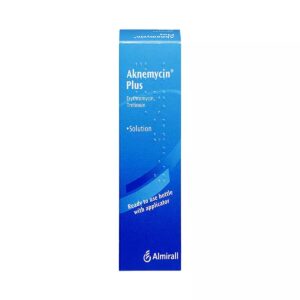








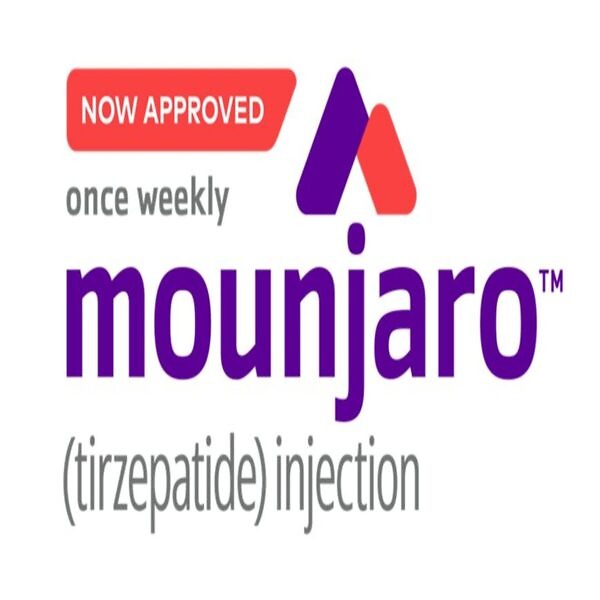




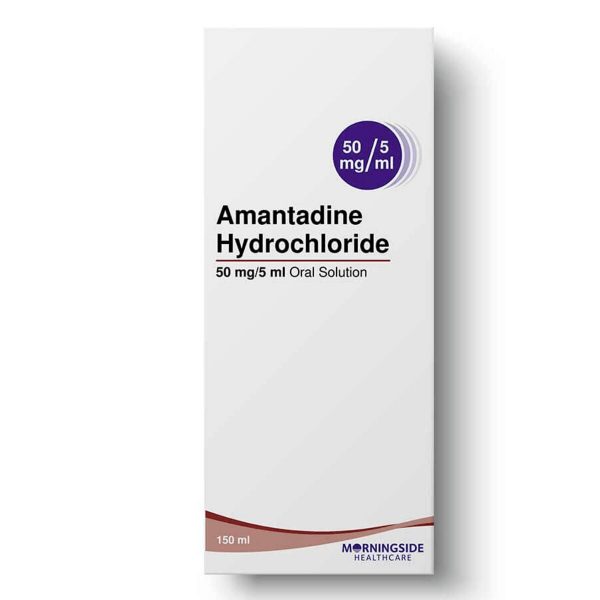
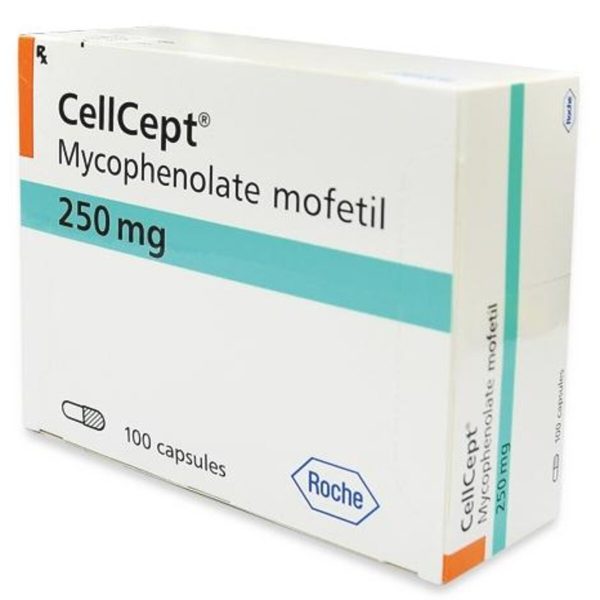
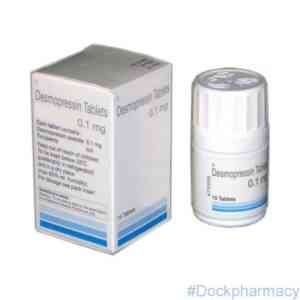
Reviews
There are no reviews yet.